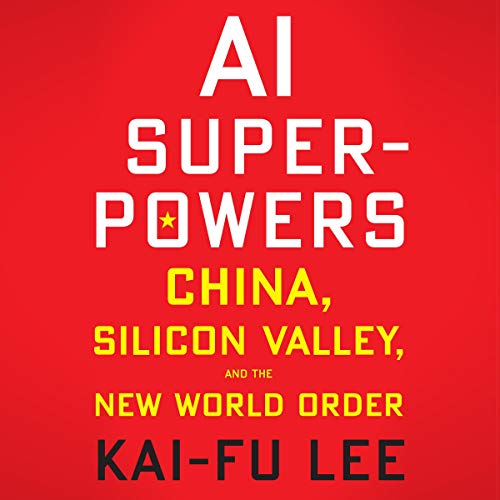An Engaging Exploration of the AI Race Between China and Silicon Valley
In “AI Superpowers: China, Silicon Valley, and the New World Order,” Dr. Kai-Fu Lee offers a captivating analysis of the rapidly evolving field of artificial intelligence (AI) and its impact on both blue-collar and white-collar jobs. As one of the world’s leading experts on AI and China, Lee provides valuable insights into the unexpected rise of China as an AI powerhouse, challenging the traditional dominance of Silicon Valley.
Lee’s book is a wake-up call, highlighting the urgent need for both the United States and China to acknowledge and embrace the responsibilities that come with their significant technological power. He argues that the AI revolution is happening much sooner than anticipated, and its consequences will be far-reaching. The author’s expertise shines through as he delves into the potential implications for various job sectors, leaving readers with a newfound understanding of the magnitude of change that lies ahead.
One aspect that sets this book apart is Lee’s ability to strike a balance between technical analysis and accessibility. He explains complex concepts in a clear and concise manner, ensuring that readers from all backgrounds can grasp the key ideas. Whether you have a background in technology or not, you’ll find yourself engrossed in Lee’s thought-provoking explanations and predictions.
One of the most intriguing aspects of “AI Superpowers” is Lee’s exploration of the impact of AI on white-collar jobs. While it is widely acknowledged that blue-collar jobs will be heavily affected, Lee argues that white-collar jobs will also undergo significant transformations. He offers valuable insights into which jobs will be most affected and provides suggestions on how individuals can navigate these changes.
Contrary to the popular belief that universal basic income could be the solution to widespread job displacement, Lee presents a different perspective. He challenges this notion and offers alternative solutions to the challenges that lie ahead. By doing so, Lee encourages readers to think critically about the future and consider innovative approaches to mitigate the potential negative impacts of AI on society.
In conclusion, “AI Superpowers” is an eye-opening and thought-provoking book that delves into the AI race between China and Silicon Valley. Dr. Kai-Fu Lee’s expertise in the field shines through as he offers valuable insights into the rapid advancements of AI and its implications for the job market. This book is a must-read for anyone interested in understanding the transformative power of AI and how it will shape our future.
